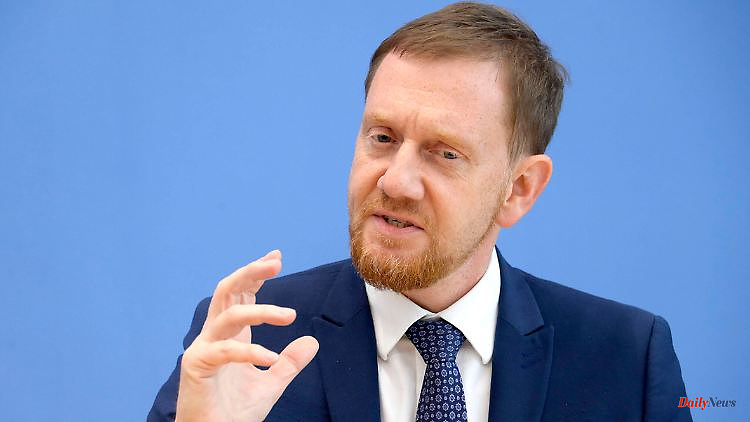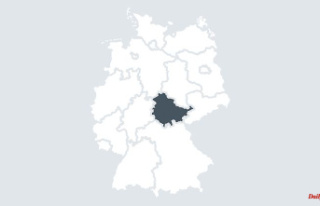32 years after reunification, Saxony's Prime Minister Kretschmer complains that East German opinions are at best equal in Sunday speeches. He describes the Ukraine war as a "cut". Other East German prime ministers also see cohesion in danger.
According to Saxony's Prime Minister Michael Kretschmer, the Russian war of aggression in Ukraine changed the relationship between Germans in East and West. "This war will be an incision that will go down in the collective memory of the Germans as a common bitter experience," he told the editorial network Germany. "In the future we will talk about how we experienced it together." That will "fundamentally change" Germany and also the coexistence. It is now time to no longer just look in the rear-view mirror, but to shape the new era that has now begun together.
32 years after reunification, one has to accept "that there are different points of view, also with regard to the view of the war in Ukraine and the question of how to deal with it". You have to accept "that we have a different position" and that it is "absolutely equal". It can't be the case that Sunday speeches always say that opinions from the East have to be taken seriously, and then in everyday life it's different again.
Other East German prime ministers also see the danger that the successes in building up East Germany since reunification will be jeopardized by the energy crisis. Before the Day of German Unity, which will be celebrated with a ceremony in Erfurt, Brandenburg's Prime Minister Dietmar Woidke from the SPD and Saxony-Anhalt's Prime Minister Reiner Haseloff from the CDU appealed to social cohesion in Germany. But they also referred to the concerns of many East Germans about losing what they had worked so hard to build.
Many East Germans still have very clear memories of the major structural breaks with mass unemployment in the 1990s, Woidke told the "Rheinische Post". "It is therefore also clear that the current situation is being viewed with great concern and that many are afraid that everything they have painstakingly built up over three decades will collapse." Haseloff told the newspaper that the Russian war of aggression against Ukraine is also endangering the success of the reconstruction of the East.
Especially in difficult times, however, the Germans should not allow themselves to be played off against one another. "Today, solidarity and community spirit are more important than ever," said Haseloff. For Thuringia's CDU parliamentary group leader Mario Voigt, "the generation of the peaceful revolution is about to lose their hard-earned prosperity through price increases."
Thuringia's prime minister, the Left Bodo Ramelow, also appealed to the commonalities of the Germans, despite existing problems such as wage differences between East and West. There is still a process of growing together, with breaks, but also many positive impulses. For him the glass is not half empty, "for me the glass is half full," said Ramelow in Erfurt.
Several hundred guests are expected in the Thuringian state capital for the central celebration on the Day of German Unity, including Federal Chancellor Olaf Scholz and Federal President Frank-Walter Steinmeier. At the ceremony in the Erfurt Opera from 12 p.m., Bundestag President Bärbel Bas will speak. Traditionally, the federal state that provides the President of the Federal Council organizes the central unity celebration. Ramelow is President of the Chamber of States until the end of October.
Before the ceremony, which commemorates the peaceful revolution of 1989 and German reunification 32 years ago, representatives of the federal and state governments come together for an ecumenical service in Erfurt Cathedral. A public festival, at which the 16 federal states present themselves, among other things, invites visitors to the historic old town. In the afternoon, Steinmeier invites representatives from the federal states to a citizens' reception. Tens of thousands of visitors have come to the celebrations in Erfurt, which began on Saturday.












